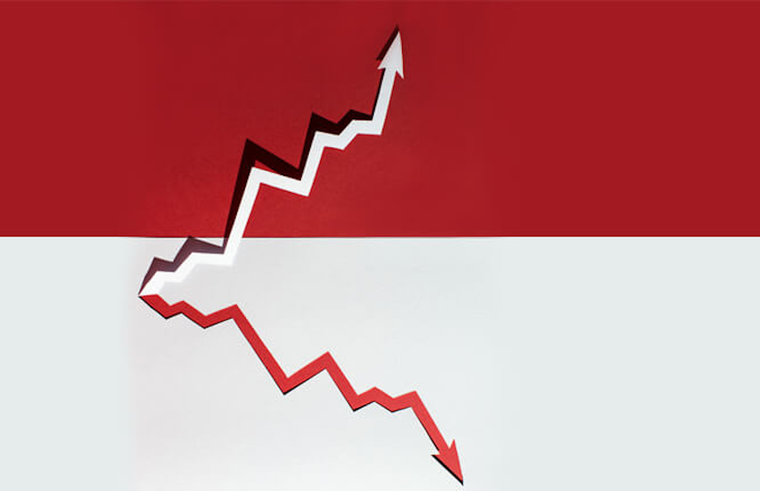On Friday 29 September, Dirk-Jan Koch gave an in-person lecture on his new book ‘Foreign Aid and its Unintended Consequences‘ as part of the Cutting Edge Issues in Development Lecture Series for 2023/24. Dirk-Jan Koch is Chief Science Officer of the Netherlands Ministry of Foreign Affairs. The discussant for this lecture, Clare Short, is a British politician and during her time in Parliament oversaw the transformation of the previous Overseas Development Agency into the newly independent Department for International Development (DfID). Read what MSc students Michaela Ho and Dawson Shinners took away from the lecture below.
You can watch the lecture back on YouTube or listen to the podcast.
While Koch was a compelling speaker and certainly has many interesting things to say about international aid, his presentation leaves some key concerns relating to development aid unresolved.
Discussions on the role of international aid in development have become increasingly polarised. Its defenders believe aid is key in supporting vulnerable communities access to basic services, while its detractors point to aid institutions’ failings relating to sexual assault and raise concerns of aid dependency.
Dirk-Jan Koch in his book Foreign Aid and Its Unintended Consequences attempts to bridge this divide by providing a more balanced view on aid and its effects. He presented a selection of these effects to our International Development department Master’s cohort on Friday, 29 September.
Backlash effects are relatively well-known to anyone who has ever engaged in discussions around the value of development aid. In essence, it refers to when the development aid effort leads to the opposite effect than was intended by the donor. Here, Koch details the experience of Francois, a queer Senegalese activist who was forced to flee the country after an Oxfam letter about respecting LGBTQI+ people in the workplace caused extensive government backlash against the queer community.
A highlight of Koch’s discussion was his use of examples relating to people and circumstances that he had personal experience and relationships with. This not only enriched the speech, but also lent to a feeling of legitimacy to his arguments. As someone from the Global South, I often find it difficult to take arguments from people from countries as rich as the Netherlands seriously, but the interweaving of African examples, from areas where Koch had worked, allowed me to give him more of the benefit of the doubt.
Despite this, his arguments about behavioural and ripple effects were less convincing to me. When speaking about behavioural effects, he mentioned the well-known example of microfinance programmes for women sometimes leading to domestic abuse of the recipient women by their partners. This was picked up again in the question-and-answer session, with students voicing concern for how to design such programmes without causing unintended consequences as dire as these. He did indicate that the microfinance programme was adapted to engage with both women and their partners beforehand and has seen the reduction in domestic violence linked to the programme since, but I felt myself left with a feeling of unease around these programmes, and ultimately feel the issue remains unresolved.
I believe that development aid is a valuable weapon in our arsenal to fight against global poverty and inequality. Moreover, Koch’s recommendations that the aid community turn to more complex, evidence-based decision-making regarding their programmes and programme design, done in equal partnership with country recipients, strike me as likely to be the best way forward for international aid. However, the packaging of this message into a listicle-turned-book-turned-PowerPoint was less compelling that I believe it could have been. Perhaps I will have to read the (freely available!) book to decide.
Michaela Ho
The inaugural event of this year’s Cutting-Edge Issues in Development series wasted no time in delving into a salient topic: the unintended consequences of foreign aid. Dirk-Jan Koch, presenting his newly published work, shared how his inspiration for writing the book traces back to his time as a MSc in Development Management student right here at the LSE. During his studies, he believed that popular perspectives like Jeffrey Sachs’, often assigned in course readings, warranted more extensive and thorough viewpoints for students of development studies to be exposed to.
In an engaging presentation, the audience participated by scanning a QR code to vote on Koch’s proposed top ten unintended effects of foreign aid to be further explored in more detail. Notably, a captivating contender received a significant number of votes: the backlash effect. Koch emphasized how backlash can manifest as anti-aid and anti-foreign value sentiments, highlighting that foreign aid initiatives can sometimes arouse suspicions about the true intentions of external actors. Furthermore, these interventions often impose the risk of harmful impediments of cultural values on host societies, proving detrimental to local communities. While Koch asserted that foreign aid produces just as many positive unintended effects as it does negative, the author predominantly focused upon the negative.
Koch’s arguments primarily centered around the necessity for a more sophisticated approach to development thinking in today’s socio-political climate. Clare Short, former UK Secretary of State for International Development, expanded upon this narrative during her discussion. She pointed out that development should extend beyond the mere distribution of foreign aid. Instead, she advocated for a focus on the vitality of strengthening governmental institutions, emphasizing their role in fostering long-term, sustainable development. This shift, she argued, is more valuable than merely chasing progress targets to be reported back to aid agencies.
A key takeaway from Koch’s presentation emphasizes the importance of calculated risk-taking. This concept involves maintaining an acute awareness of the potential unintended consequences associated with foreign aid. Those involved in the development field must carefully evaluate these risks against potential benefits when shaping their strategies. Koch suggested that achieving this balance necessitates embracing complexity within the program cycle and transcending traditional boundaries to learning. In essence, it involves departing from linear systems thinking and adopting more intricate thought processes.
Altogether, the launch of this year’s series proved to be an insightful and enjoyable experience, brimming with rich ideas and valuable insights. Excited to see what the lectures to come have in store for us!
Dawson Shinners
The next guest lecture will be with Ha-Joon Chang on Friday 6 October 2023 on ‘Confronting multiple Crises: A conversation with Ha-Joon Chang on the state of the world economy’. LSE Students, Staff and Alumni can attend the in-person event. External audiences can watch back the lecture via YouTube, or listen to our podcast.
The views expressed in this post are those of the author and in no way reflect those of the International Development LSE blog or the London School of Economics and Political Science.





